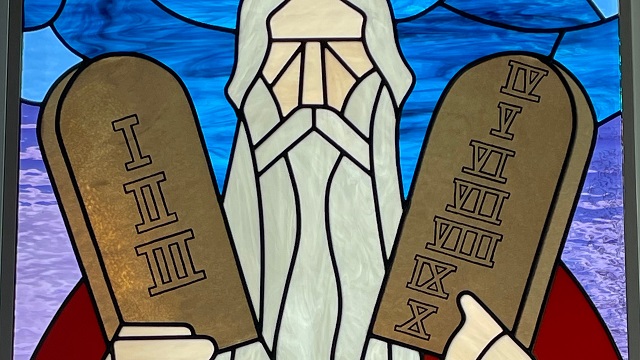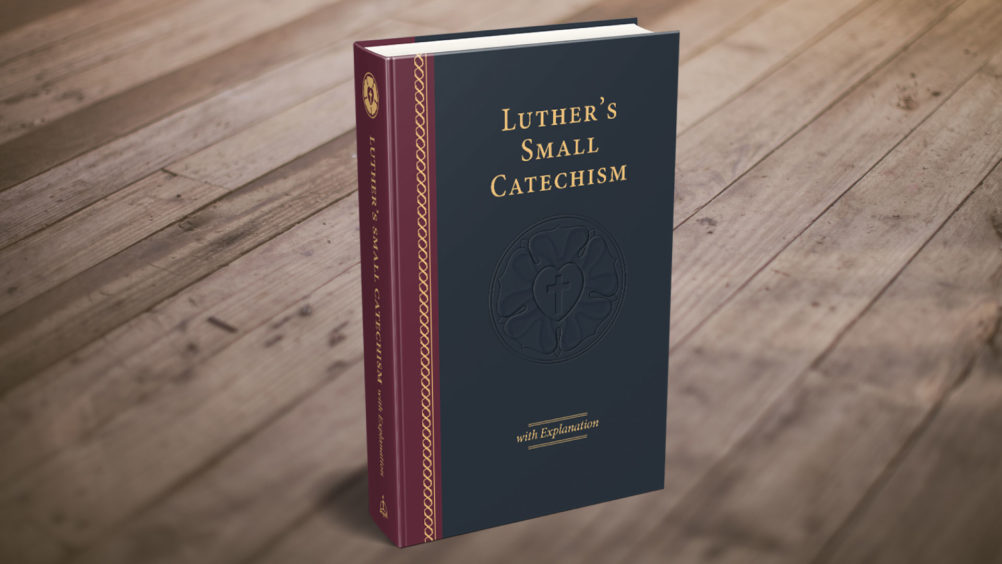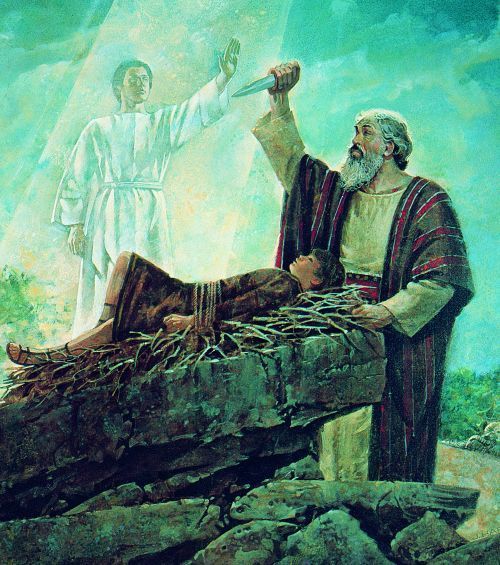Readings: Jeremiah 31:31–34 | Hebrews 5:1–10 | Mark 10:35-45
Text: Mark 10:35-45
In Jeremiah 31, the Lord says in coming days that He will make a new covenant with His people. He says that in this new covenant, “I will put my law within them, and I will write it on their hearts. And I will be their God, and they shall be my people. 34 And no longer shall each one teach his neighbor and each his brother, saying, ‘Know the Lord,’ for they shall all know me, from the least of them to the greatest, declares the Lord.” (Jer. 31:33-34)

So, that begs the question, how does the Lord write His Law on our hearts? We know from secular studies about teaching that there are different kinds of learners: visual, auditory, kinesthetic, and reading/writing. Some have an ear that will remember what was said or have a keen memory for things that are sung. For others, it may be having a picture to illustrate or associate with the lesson. Kinesthetic learners absorb by interacting hands-on. Read/writing learners retain what they read and can cement it by writing notes.
As a side note, the Christian Church throughout the centuries has employed these different modes—singing our faith; using the visual arts; making use of labyrinths and rosaries; and meditating on the heard and written Word of God.
But back to the question of how God writes His Law onto our hearts. He tried the spoken and written form from Sinai, and the problem was that sin in us only rebelled when God exposed it. He’s given tactile examples of His work through signs like circumcision and leading His people through the Red Sea, yet somehow those illustrations often don’t make it to the heart. He gave visuals like the serpent lifted up on a pole, and the people turned it into an object of worship, called it Nehushtan, and made offerings to it (2 Kings 18:4). And as Jesus so aptly points out, God sent many prophets to speak into the ears of the people, but their hearts were hard and unwilling to listen (Matt. 23:29-35).
Now that all the typical methods of learning are exhausted, what remains? From the Epistle reading, we hear:

7 In the days of his flesh, Jesus offered up prayers and supplications, with loud cries and tears, to him who was able to save him from death, and he was heard because of his reverence. 8 Although he was a son, he learned obedience through what he suffered. 9 And being made perfect, he became the source of eternal salvation to all who obey him, 10 being designated by God a high priest after the order of Melchizedek.
It isn’t simply a matter of how to make a righteous, obedient people, but a question of Whom. Jesus appeared, not as another Law-giver like Moses, because the Law Peter calls a “yoke…that neither our fathers nor we have been able to bear, but we believe that we will be saved through the grace of the Lord Jesus” (Acts 15:10-11). Jesus came to intercede for sinners, stiff-necked and spiritually dead as we are. He came to bring life and immortality to light by His work, which we call the Gospel. In the “days of His flesh,” He manifested that the way to God is not simply taught through words or kept by threats of punishment. The way to God is through suffering, as it says, “Although He was a Son, He learned obedience through what He suffered. And being made perfect, He became the source of eternal salvation to all who obey Him.” (v. 8-9)
We hear this, and we think God must be some kind of sadist, who delights in squeezing the evil out of people by making the do without, bearing agony in their soul and body, and then hiding His face from them in their greatest time of need. That is what suffering is without Christ. It leads people to cry out, “If God is good, why does He allow evil to happen?” But you will never receive a satisfactory answer to a question like this.

The way to God doesn’t come in answer to our questioning the suffering (and accusing God of causing it or being unjust to us). It comes through the suffering which God did inflict on His own Son, Jesus Christ. Suffering is evil. Death is evil. Sin is evil. But when they meet in God’s Holy One, they all become holy. It’s in Him that suffering is given meaning and purpose.
In the Gospel, James and John asked the Lord Jesus, “Grant us to sit, one at your right hand and one at your left, in your glory.” To which, He asked them, “Are you able to drink the cup that I drink, or to be baptized with the baptism with which I am baptized?…The cup that I drink you will drink, and with the baptism with which I am baptized, you will be baptized.”
To have a share in the Kingdom of God is to be trained by suffering before we enter into glory, just as our Savior was. You and I share in that through Baptism: “Do you not know that all of us who have been baptized into Christ Jesus were baptized into his death? 4 We were buried therefore with him by baptism into death, in order that, just as Christ was raised from the dead by the glory of the Father, we too might walk in newness of life.”
In Christ our Lord, our suffering and death are made holy and good. Wait! Did the pastor just say that? Yes, for the child of God, who lives in the One who “learned obedience…and was made perfect by what He suffered” These things are good in God’s sight. Consider these passages:
From King David, “Precious in the sight of the Lord is the death of His saints.” Ps. 116:15
From Elihu teaching Job, “He delivers the afflicted by their affliction and opens their ear by adversity.” (Job 36:15)

James is so bold to say, “2 Count it all joy, my brothers, when you meet trials of various kinds, 3 for you know that the testing of your faith produces steadfastness. 4 And let steadfastness have its full effect, that you may be perfect and complete, lacking in nothing.” (James 1:2-4)
And as St. Peter wrote to us, “21 For to this you have been called, because Christ also suffered for you, leaving you an example, so that you might follow in his steps. 22 He committed no sin, neither was deceit found in his mouth. 23 When he was reviled, he did not revile in return; when he suffered, he did not threaten, but continued entrusting himself to him who judges justly. 24 He himself bore our sins in his body on the tree, that we might die to sin and live to righteousness. By his wounds you have been healed. 25 For you were straying like sheep, but have now returned to the Shepherd and Overseer of your souls.” (1 Peter 2:21-25)
The way in which God teaches and plants His instruction home in us, is after the image of Jesus, the Crucified One. But He was not only crucified, dead, and buried. On the Third Day, God raised Him from the dead, to live victorious over the sin and death of this world. That’s the victory which He gives to you while you are suffering. God is not a sadist, but a Savior, because “after you have suffered a little while, the God of all grace, who has called you to his eternal glory in Christ, will himself restore, confirm, strengthen, and establish you.”
For this, His good and gracious purpose, may He strengthen and keep you now and unto eternity. Amen.






































